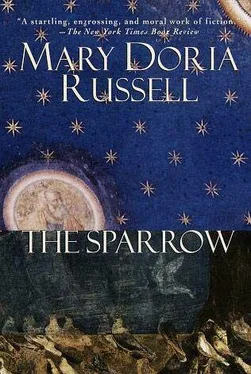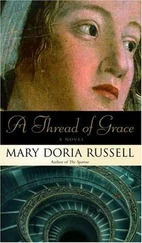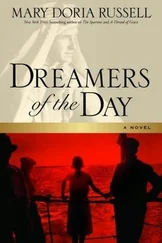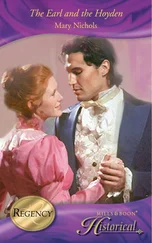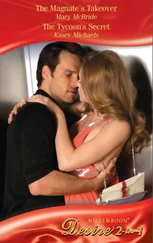Mary Russel - The Sparrow
Здесь есть возможность читать онлайн «Mary Russel - The Sparrow» весь текст электронной книги совершенно бесплатно (целиком полную версию без сокращений). В некоторых случаях можно слушать аудио, скачать через торрент в формате fb2 и присутствует краткое содержание. Город: New York, Год выпуска: 1996, ISBN: 1996, Издательство: Fawcett Columbine, Жанр: Социально-психологическая фантастика, на английском языке. Описание произведения, (предисловие) а так же отзывы посетителей доступны на портале библиотеки ЛибКат.
- Название:The Sparrow
- Автор:
- Издательство:Fawcett Columbine
- Жанр:
- Год:1996
- Город:New York
- ISBN:0-449-91255-8
- Рейтинг книги:5 / 5. Голосов: 1
-
Избранное:Добавить в избранное
- Отзывы:
-
Ваша оценка:
- 100
- 1
- 2
- 3
- 4
- 5
The Sparrow: краткое содержание, описание и аннотация
Предлагаем к чтению аннотацию, описание, краткое содержание или предисловие (зависит от того, что написал сам автор книги «The Sparrow»). Если вы не нашли необходимую информацию о книге — напишите в комментариях, мы постараемся отыскать её.
Awards:
John W Campbell Memorial Award (nominee)
Arthur C. Clarke Award
British Science Fiction Association
The Sparrow — читать онлайн бесплатно полную книгу (весь текст) целиком
Ниже представлен текст книги, разбитый по страницам. Система сохранения места последней прочитанной страницы, позволяет с удобством читать онлайн бесплатно книгу «The Sparrow», без необходимости каждый раз заново искать на чём Вы остановились. Поставьте закладку, и сможете в любой момент перейти на страницу, на которой закончили чтение.
Интервал:
Закладка:
"…but a pleasing proportion, an elegant muscularity," the Reshtar was saying. Admiring its neat and graceful compactness, he moved thoughtfully around the exotic body, one hand trailing, his fine claws leaving on the hairless chest thin lines that quickly seeped red beads. He passed his hand around the shoulder and, regarding the curve of the neck, encircled it with his hands, noting its delicacy: why, one could snap the spine with a single gesture. His hands moved again, lightly caressing the hairless back, moved lower, to the bizarre void, the fascinating stillness and vulnerability of taillessness.
Standing back, he saw that the foreigner had begun to tremble. Surprised at the rapidity of response, the Reshtar now moved to test readiness, lifting the foreigner's chin and staring directly into the dark unreadable eyes. His own eyes narrowed at the reaction: the head turned quickly in submission, eyes closed, the whole body quaking. Pathetic, in a way, and untutored, but with great appeal.
"Lord?" It was the merchant. "It is acceptable? You are pleased?"
"Yes," the Reshtar said, distracted. He looked at Supaari and spoke then with impatience. "Yes. My secretary has the legal work in hand. You may contract the binding with my sister on whatever date seems propitious. Brother: may you have children." His gaze returned to the foreigner. "Leave me now," he said, and Supaari VaGayjur, rendered Founder of a new lineage for his service to the Reshtar of Galatna, in company with the guard who had escorted Sandoz from the seraglio, backed out of the room.
Alone, the Reshtar circled once more but came to rest behind the foreigner. He dropped his own robe then and stood, concentrating, eyes closed, on the fresh outpouring of scent, more intense, more complex than before. A powerful, stirring fragrance, unparalleled and irresistible. A musk redolent of unfamiliar amines, of strange butyric and caprylic carbon chains, misted by the simple chaste dioxides of shuddering breath and stirred by waves of iron bloodscent.
Hlavin Kitheri, Reshtar of Galatna Palace, the greatest poet of his age, who had ennobled the despised, exalted the ordinary, immortalized the fleeting, a singularity whose artistry was first concentrated and then released, magnified, by the incomparable and unprecedented, inhaled deeply. We shall sing of this for generations, he thought.
Language, his life's work and his delight, which had failed Emilio Sandoz word by word, now deserted him utterly. Shuddering in violent moronic waves, he could smell the nauseating glandular reek of his own terror. Mute, he was unable even to think the word for the unspeakable joyless rite that was coming, not even when his arms were seized from behind. But when the powerful prehensile feet locked over his ankles and the belly settled in behind him and the probing began, he went rigid with panic and fathomless horror, understanding finally what was about to happen. The penetration, when it came, made him scream. Things became very much worse after that.
Perhaps ten minutes later he was pulled to an unfamiliar room, bleeding and sobbing. Left alone, he vomited until he was exhausted. He did not think for a long while but only rested, eyes open in the deepening darkness. Eventually, a servant came to take him to the baths. By that time, his life was irrevocably divided, into before and after.
In the quiet of the Father General's office, only Johannes Voelker spoke. "I don't understand. What did the Reshtar want with you?"
My God, Giuliani was thinking, genius may have its limits but stupidity is not thus handicapped. How could I have believed—Eyes closed, he heard Emilio's voice, soft and musical and empty, saying, "What did he want with me? Why, the same thing a pederast wants with a little boy, I imagine. A nice, tight fit."
In the shocked silence, Giuliani's head came up. Romanita, he thought. Know the act and move ruthlessly when the time is right. "You are many things, but you are not a coward," the Father General said to Emilio Sandoz. "Face it. Tell us."
"I have told you."
"Make us understand."
"I don't care what you understand. It won't change anything. Believe what you like."
Giuliani tried to remember the name of a painting by El Greco: a study of a Spanish nobleman in death. Romanita excludes emotion, doubt. It has to be now, here. "For your own soul, say it."
"I did not sell myself," Sandoz said in a fierce whisper, looking at no one. "I was sold."
"Not good enough. Say it!"
Sandoz was still, his eyes unfocused, each breath coming with mechanical regularity as though carefully planned and executed, until the moment came when he leaned away from the table, put a foot on its edge and sent it crashing over, splintering in the volcanic explosion of rage, scattering the other men to the edges of the room. Only the Father General remained where he was, and all the sounds of the world were reduced to the ticking of an ancient clock and the harsh, laboring breath of the man standing alone in the center of the room, whose lips formed words they could hardly hear. "I gave no consent."
"Say it," Giuliani repeated, unrelenting. "Make us hear it."
"I was not a prostitute."
"No. You weren't. What were you then? Say it, Emilio."
Each word separate, the threadbare voice breaking on the last: "I was raped."
They could see the cost to him, the price of saying this. He stood swaying slightly, the armature of his face demolished by the work of thin, fine muscles. John Candotti breathed: "My God," and somewhere Emilio Sandoz found, inside himself, the black and brittle iron required to turn his head and endure, unflinching, the compassion in John's eyes.
"Do you think so, John? Was it your God?" he asked with terrifying gentleness. "You see, that is my dilemma. Because if I was led by God to love God, step by step, as it seemed, if I accept that the beauty and the rapture were real and true, then the rest of it was God's will too, and that, gentlemen, is cause for bitterness. But if I am simply a deluded ape who took a lot of old folktales far too seriously, then I brought all this on myself and my companions and the whole business becomes farcical, doesn't it. The problem with atheism, I find, under these circumstances," he continued with academic exactitude, each word etched on the air with acid, "is that I have no one to despise but myself. If, however, I choose to believe that God is vicious, then at least I have the solace of hating God."
Looking from face to face, he watched comprehension working its way into their minds. What could any of them say? He almost laughed. "Can you guess what I thought just before I was used the first time?" he asked them as he began to pace. "This is rich. This is very funny! You see, I was scared but I didn't understand what was going on. I never imagined—who could have imagined such a thing? I am in God's hands, I thought. I loved God and I trusted in His love. Amusing, isn't it? I laid down all my defenses. I had nothing between me and what happened but the love of God. And I was raped. I was naked before God and I was raped."
The agitated pacing halted as he heard his own words, his voice almost normal until the end, when it fell away into uncomprehending grief, when he knew at last his own devastation fully. But he did not die, and when he could move again, and breathe once more, he looked at Vincenzo Giuliani, who said nothing, who met his eyes and would not look away.
"Tell us." Two words. It was, Vincenzo Giuliani thought, the hardest thing he had ever done.
"You want more?" Sandoz asked, incredulous. Then he was moving again, unable to keep still or silent a moment longer. "I can provide endless detail," he offered, theatrically expansive, merciless now. "It went on for—I don't know how long. Months. It seemed like eternity. He shared me with his friends. I became rather fashionable. A number of exquisite individuals came to use me. It was a form of connoisseurship, I think. Sometimes," he said, stopping and looking at each of them, hating them for their witness, "sometimes, there was an audience."
Читать дальшеИнтервал:
Закладка:
Похожие книги на «The Sparrow»
Представляем Вашему вниманию похожие книги на «The Sparrow» списком для выбора. Мы отобрали схожую по названию и смыслу литературу в надежде предоставить читателям больше вариантов отыскать новые, интересные, ещё непрочитанные произведения.
Обсуждение, отзывы о книге «The Sparrow» и просто собственные мнения читателей. Оставьте ваши комментарии, напишите, что Вы думаете о произведении, его смысле или главных героях. Укажите что конкретно понравилось, а что нет, и почему Вы так считаете.
